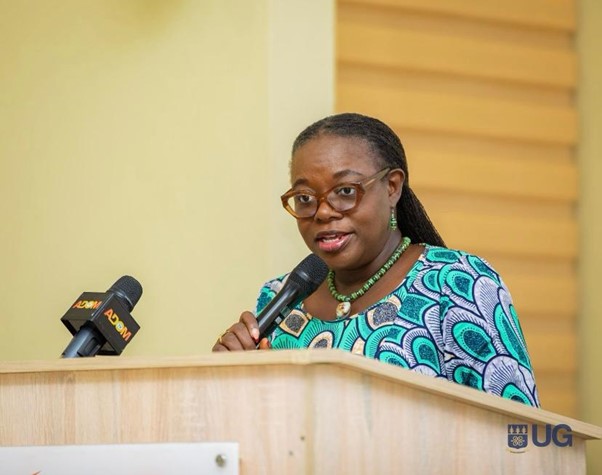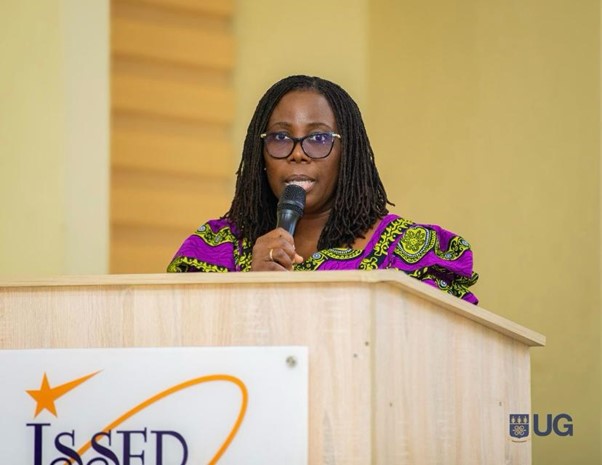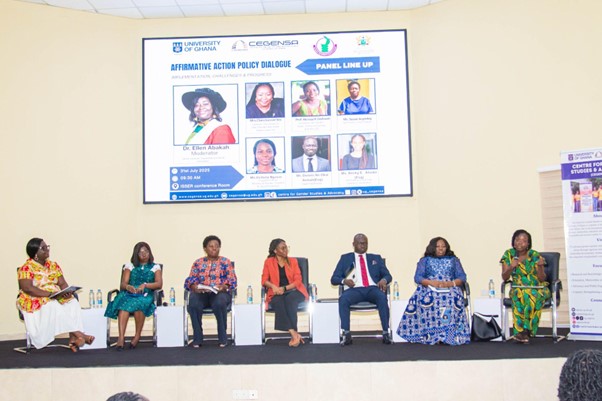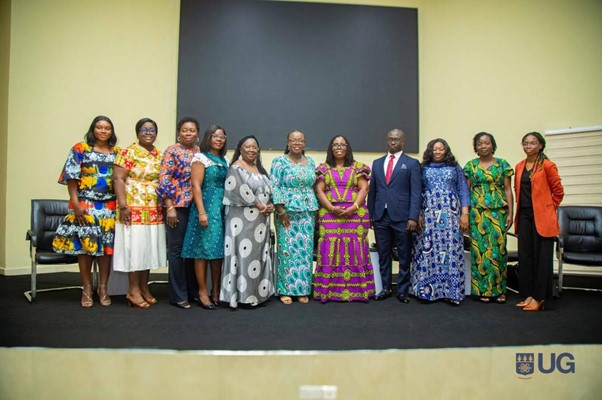One Year After Affirmative Action Act: CEGENSA Hosts National Dialogue to Spur Implementation
A year after the historic passage of Ghana’s Affirmative Action (Gender Equity) Act, stakeholders from government, academia, civil society, and the legal sector gathered at the University of Ghana to reflect on its impact, highlight implementation challenges, and renew their collective commitment to gender equity.
Organised by the Centre for Gender Studies and Advocacy (CEGENSA), in collaboration with the Ministry of Gender, Children and Social Protection (MoGCSP), NETRIGHT Ghana, and the African Women’s Development Fund (AWDF), the high-level policy dialogue formed part of commemorations for Pan-African Women’s Day. The event convened over 300 participants under the theme: “The Affirmative Action Act 2024: Implementation, Progress, and Challenges.”
A Law Anchored in Democratic Rights

Chairing the event, Professor Nana Aba Appiah Amfo, Vice Chancellor of the University of Ghana, emphasized that the Affirmative Action Act must be viewed not as a concession to women, but as a democratic obligation. She described it as foundational to inclusive governance and sustainable national development.
Delivering remarks on behalf of the Minister for Gender, Children and Social Protection, Ms. Anastasia Asare, the Ministry’s Programmes Director, highlighted the essential role academia and civil society must continue to play in raising public awareness and sustaining momentum. She affirmed the Ministry’s readiness to partner with institutions like CEGENSA to ensure the law translates into real change.
Reflections from the Frontlines of Advocacy
Speaking at the event, Professor Deborah Atobrah, Director of CEGENSA, called for critical reflection on the implementation journey one year on. She underscored that the Act is more than a policy win, it is a constitutional safeguard of equality.

“This Act is not just a legislative win. It is a constitutional imperative to protect the rights of all citizens. One year later, we must ask, what has changed, and for whom?” she said.
Legal practitioner and Coordinator of the Affirmative Action Bill Coalition, Becky Ahadzi (Esq.), raised concerns about the law's lack of specific enforcement mechanisms, warning that this could open the door to institutional evasion.
She urged collective national effort to meet the 30% minimum target for women’s representation in decision-making by 2026, warning that existing political weaknesses may undermine compliance, especially in the private sector.
Ms. Victoria Nyavor, Programmes Officer at MoGCSP, also emphasized that while the Act’s passage was a milestone, tangible implementation remains limited. She pointed out that provisions such as establishing Affirmative Action Units in ministries and conducting gender parity audits have yet to be scaled nationally.
"We need to develop and implement policies that promote gender equity and hold stakeholders accountable for progress. The need to continuously track and address gender gaps in various sectors cannot be overstated," she noted.
What the Act Requires
- The Affirmative Action (Gender Equity) Act mandates:
- A minimum 30% representation of women in all public decision-making bodies
- Institutional reforms in political parties, local governance, and public recruitment
- Structures to monitor and evaluate gender balance in appointments and promotions
- Sanctions for public institutions that fail to comply
A Road Still Under Construction

The dialogue also served as a platform to examine national and local-level implementation gaps, identify institutional bottlenecks, and propose concrete policy solutions. Distinguished speakers included:
● Prof. Akosua K. Darkwah, Convenor of NETRIGHT
● Ms. Susan Aryeetey, Executive Director, FIDA
● Dr. Clara Kasser Tee, Head, Kasser Law Firm
● Mr. Dennis Nii Okai Armah, Legal Practitioner
“Policy without implementation is not progress; it is the postponement of justice,” said Ms. Aryeetey. “The promise of this Act must be felt in every district, every boardroom, every state agency and every legislative body”
About CEGENSA
The Centre for Gender Studies and Advocacy (CEGENSA) at the University of Ghana is a pioneer in advancing gender equality in Ghana and across Africa. Through research, advocacy, capacity strengthening, and leadership development, CEGENSA works to shape a future where equity is not only a goal but a lived reality.
Media Contact
Rosemary Balami
Communications & Partnerships Officer
cegensa-communications@ug.edu.gh
+233 209 205 816

